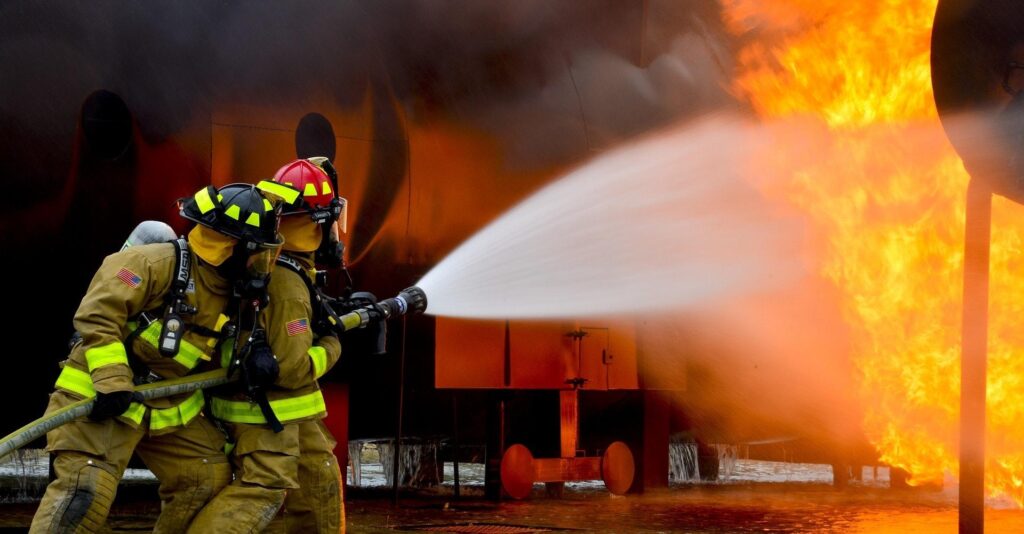Support & Recovery
Whether stemming from a single traumatic brain injury (TBI) or a history of repeated brain injuries, it is a multifaceted issue that significantly affects us as First Responders and Veterans. The inherent risks associated with our service exposes us to a higher likelihood for trauma. This necessitates a comprehensive approach to treatment that involves not only the Members themselves but also their units, healthcare teams, and families.

Living With the Invisible
Many brain injuries are not immediately identified due to the absence of visible injuries or obvious symptoms. Symptoms frequently co-occur with criteria for psychological injuries as well, making the distinction even more muddled. There are also plenty of misconceptions about brain injuries. For example, it is important to know that the threshold for a brain injury is not the loss of consciousness.
Symptoms can be subtle, and the long-term consequences can be significant without proper treatment. Many Veterans remain unaware of how severe their injuries may have been, or that they even occurred. This has led many to struggle with untreated injuries for years after their service with no clear understanding of what has happened to them.
The threshold for a brain injury is not the loss of consciousness.
Of course, these challenges can extend well beyond the Member or Veteran. Families may not fully grasp the reasons behind the emotional, cognitive, or behavioural changes they see in their loved ones. This can dramatically hinder the recovery process because First Responders and Veterans typically minimize their injuries, and families might misinterpret these changes as character flaws rather than symptoms of a severe, underlying injury.
Identifying the Injury
Examples of brain injuries from service can vary widely. For example, blast injuries were commonly associated with combat operations in Afghanistan, and many Members returned home unaware of having sustained a TBI or even several. While some causes of brain injuries, such as blast injuries or from flying projectiles, may seem obvious and extreme, other causes can be more subtle.
Other frequent causes of a TBI from service include Police Officers experiencing injuries during physical altercations, or Paramedics facing violent, uncooperative patients. Many Firefighters also suffer injuries from falling objects, falling from ladders or even through floors. Even being involved in a motor vehicle accident or struck by a vehicle while on foot is a common threat many Members have described to me.
The unique conditions you face as a First Responders frequently contributes not only to different experiences compared to the public, but recovery and long-term outcomes from those injuries. Though a lot of progress has been made to reduce stigma, many Members struggle with the belief they will be criticized because of their injuries or risk their career integrity. Coupled with a pressure to return to duty and exposure to additional brain injuries after their return, the recovery process is unique and complex, involving not only a comprehensive circle of care, but support at the unit level and at home.
TBIs and the Homefront
Unrecognized or untreated TBIs can have a profound impact on family dynamics. When families are unaware of why their loved ones have changed, it can lead to frustration, helplessness, and, ultimately, emotional distancing. Promoting open communication within families about any noticeable changes in mood, cognitive function, and behaviour changes can play a pivotal role in recognizing the presence of neurotrauma and addressing it. For example, encouraging discussions about possible past head injuries.
Unrecognized or untreated TBIs can have a profound impact on family dynamics.
Improving our awareness of TBIs is vital as First Responders or Veterans. It is also essential for our families. Understanding symptoms and the importance of seeking professional evaluations can help Members, Veterans, and their loved ones take proactive steps toward recovery. If you suspect you may have sustained a TBI in service, seeking a medical evaluation is critical.
Doing More When
We Know More
Raising awareness about TBI symptoms and encouraging families to recognize and discuss past head injuries can help open important conversations. Open communication, education, and timely professional intervention are essential for effective recovery and the maintenance of healthy family dynamics. By addressing the complexities surrounding brain injuries, we can encourage a more supportive environment for you as a First Responders or Veterans, and your family.
We work with a network of other medical practitioners, such as neurologists, who can help.